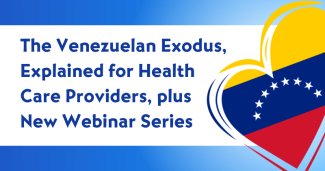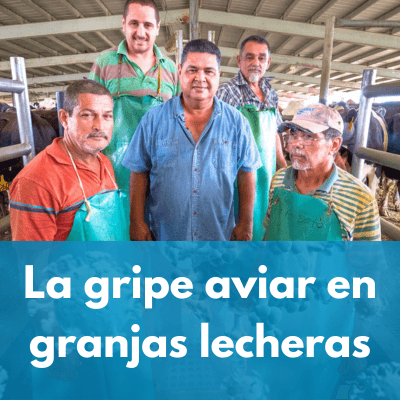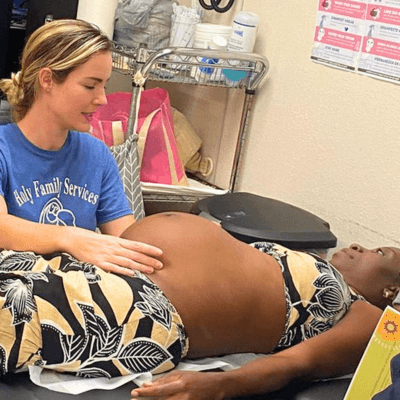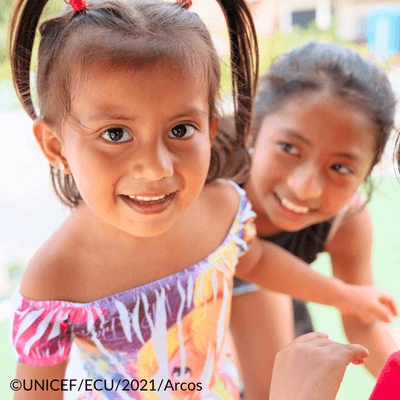The Venezuelan Exodus, Explained for Health Care Providers, plus New Webinar Series
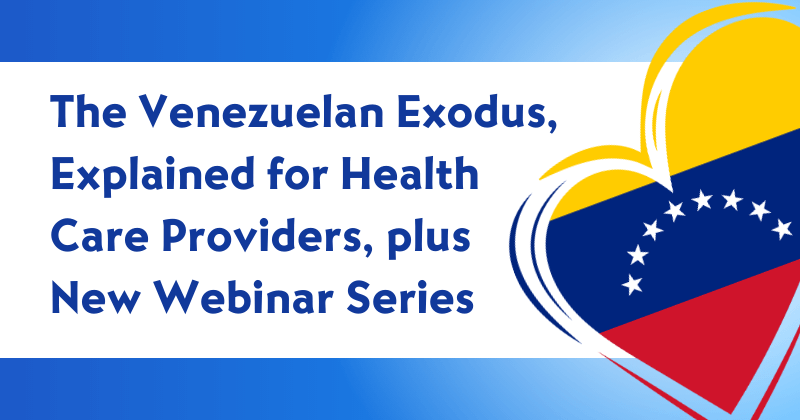
Venezuela is a land of immigrants. Toward the end of World War II, my father, at the age of four, became one of those immigrants, given up for adoption by my grandmother who, I was told, did not want him to starve to death. The migrants who arrived in Venezuela did not only come from Europe. Many of them also came from South America. Between the 50s and 80s, due to the political, economic, and social problems of countries such as Cuba, Dominican Republic, Panama, Argentina and Colombia, Venezuela received many migrants who, with their knowledge, effort, and determination, helped build the country. In my personal experience, at least during the almost four decades I lived in my country, I never saw Venezuelans, immigrants or not, looking to leave. The Venezuela I knew, despite the problems, did not emigrate.
However, over time, the country grew tired. Despite the largest proven oil reserves in the world, political and economic influences including corruption, authoritarianism and resulting sanctions, and the plummeting price of oil worldwide led to the rise of instability, eventually plunging Venezuela into crisis.
Since 2015, Venezuela has experienced several migratory waves and their causes are multiple and long-standing. In the last few years, threats from armed groups, fear of becoming a political target, extortion, high crime rates, food and medicine shortages, and widespread unemployment launched the country into a humanitarian crisis, forcing many to leave their homes.
Meanwhile, Venezuelan immigrants have been trying for years to rebuild their lives in different countries of the southern hemisphere, but the impact of COVID-19, the high cost of living, the lack of work permits, and high unemployment in the host countries have prevented many from achieving assimilation, resulting in great social tensions and even xenophobic acts against them. This is how many find themselves back at the starting line, launching themselves into new irregular migration routes in search of a better future.
A record 188,000 encounters with Venezuelan migrants occurred at the US-Mexico border in fiscal year 2022 – but the migration continues to increase. Between January and April 2023, it is estimated that approximately 100,000 migrants crossed the Darien Gap, of which the majority are Venezuelan. Coupled with the recent termination of COVID-19 emergency declarations and the end of Title 42, the increase in Venezuelan migrants at the US-Mexico border could be significant. The expanded Parole Process is expected to continue to lead to greater expulsions of Venezuelans at the border and an increase in migration to the US for Venezuelans who apply for and receive humanitarian parole before arriving to the US-Mexico border.
Migration is a human right; it is also a natural response to struggle. Sixty-nine years after my father took refuge in Venezuela, that same country began to persecute against my nephew, who was protesting the government's violation of students' human rights. In response, my nephew fled Venezuela, returning to the country of my father’s birth. Many of us – here in the US, as well as those in Venezuela – never believed we would be displaced. Understanding the vulnerabilities and unpredictability of migration from a more humane perspective has become urgent.
To prepare health care providers for this influx of Venezuelan migrants, and to build a culture of safety for all migrants, Migrant Clinicians Network is launching a three-part webinar series on Venezuela, in Spanish with simultaneous translation into English. The series will cover: 1) the Latin American historical, socioeconomic, and political context that explains the origins of this exodus; 2) the current social and political transformations that acted as expelling forces; and 3) the Venezuelans’ journey through the Northern Triangle countries and Mexico on their way to the US. Venezuelan Exodus for Health Care Providers webinar series will be presented on June 1, 8, and 15, guided by experts in the field including professors, a health justice advocate, and a doctor, who are very familiar and knowledgeable about the current situation in Venezuela and the history of the country.
Register for the webinar series on our Upcoming Webinars page.
- Log in to post comments
